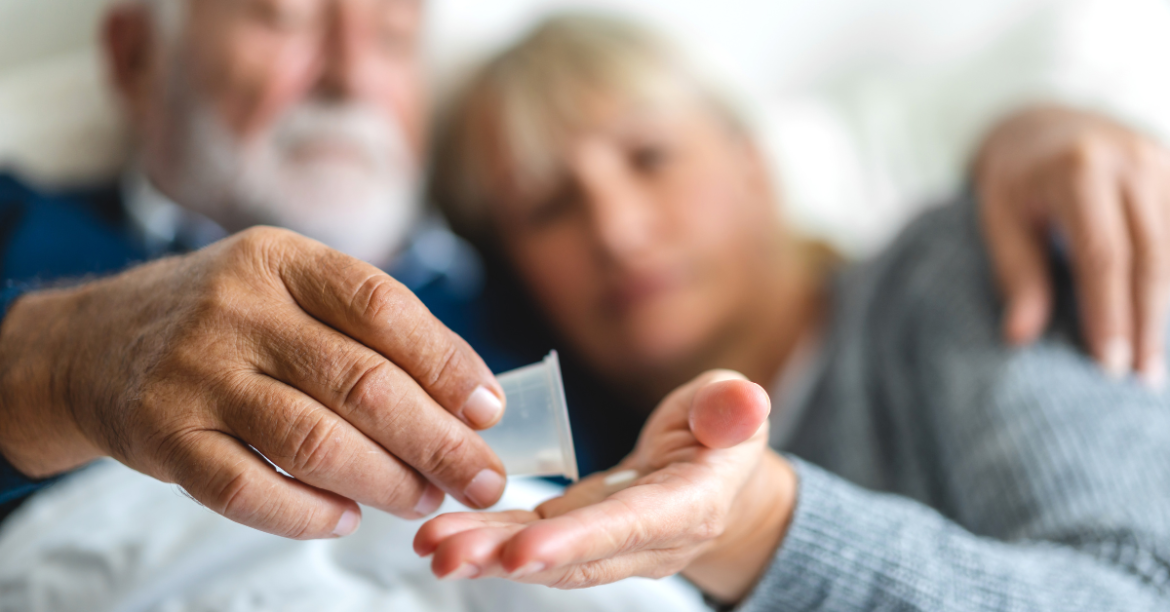
Elisabeth G. Smith, MS, BSN, RN, CHPN, Director of Education
In a previous article, we addressed two myths about morphine. Many people harbor these myths when they or a loved one become a hospice patient. Hospice professionals know morphine brings comfort to people who are in pain or having trouble breathing. With a focus on quality of care that meets the goals and needs of each unique patient, we seek to use every tool available, including morphine. That’s why we work every day to dispel these myths. Here are three more.
Myth: I can get addicted to morphine
Fact: Any opioid has the potential to be abused. Any abused drug can cause an addiction. However, for hospice patients using morphine under medical supervision, addiction is very unlikely. In my 16 years as a hospice professional, I have never seen addiction from people taking morphine appropriately.
Myth: If I take morphine early in the treatment of my disease, it won’t work when I really need it.
Fact: Many people think you should save morphine until the pain is at its worst. That is contrary to good symptom management practices. Let’s compare the symptoms your loved one experiences to a fire. There is a better chance of managing the fire when it is small and contained. You don’t want to wait until it is raging out of control. If you wait for the pain to become excruciating, you will have to use more morphine and it will take longer to bring relief.
Baseline discomfort is like a smoldering coal. Long-acting morphine dosed two to three times a day will suppress the smoldering coals. Occasionally, the smoldering coals will flare up. We call this breakthrough discomfort. That’s when we dose with the rapid acting medication. We want to get on top of that fire before it begins to rage.

Myth: Hospice doctors will push morphine on me.
Fact: Hospice care is patient-centered. Our team is going to assess any barriers to morphine. We make a plan that includes goals of care to ensure all that we do is understood and approved by the patient and family.
We understand that some people have challenges with morphine that can include allergies, experiencing side effects or a history of misuse. There are many other opioids on the market for those who can’t use morphine. There are also non-opioid options, including alternative therapies combined with other drug therapies.
Be open with your hospice team about your fears or concerns. In that openness we can individualize the plans, resources and alternatives. We want you to feel confident in how you care for yourself or your loved one.
For more morphine myths dispelled, click here to read “Don’t let these morphine myths get in the way of a better death”


